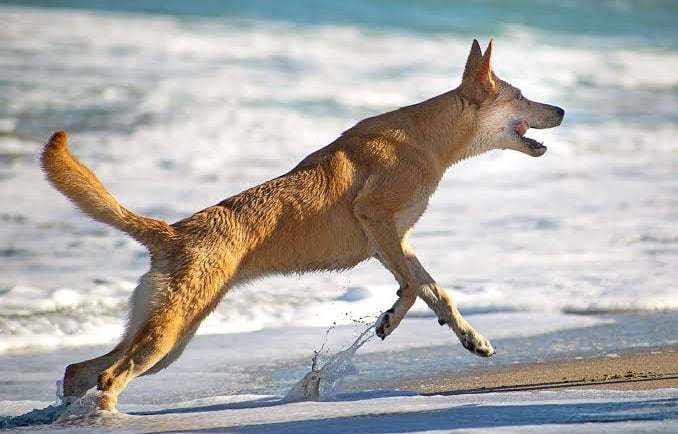Discover the Carolina Dog: America's Wild Dog
Explore the fascinating history and unique temperament of the Carolina Dog, known as America's wild dog. Learn essential care tips to ensure your Carolina Dog lives a happy and healthy life.
NEWS BREEDS
2/7/20252 min read


Carolina Dog
The Carolina Dog is unlike most domesticated breeds. Sometimes called the American Dingo, this rare and primitive breed has lived in the wild for thousands of years, roaming the southeastern United States long before European settlers arrived. Their survival instincts, intelligence, and adaptability make them a fascinating breed, blending the characteristics of both a wild animal and a devoted companion.
A Breed Rooted in History
Carolina Dogs are believed to have descended from Asian pariah dogs, brought to North America by early human migrations over 9,000 years ago. Their remains have been found in prehistoric Native American burial sites, suggesting they lived alongside indigenous tribes for centuries. Unlike other domesticated breeds, Carolina Dogs continued to survive in the wild, primarily in the swamps and forests of the southeastern U.S., particularly in South Carolina and Georgia.
In the 1970s, Dr. I. Lehr Brisbin, a biologist, discovered a population of free-ranging dogs in South Carolina that resembled ancient pariah dogs. Studies confirmed that these dogs had unique genetic markers linking them to early domesticated dogs from Asia. Since then, efforts have been made to preserve and understand the breed, though they remain relatively rare.
Temperament and Personality
Carolina Dogs have a strong pack mentality and are incredibly loyal to their families. However, their independent nature means they are not overly clingy or needy. They tend to be cautious around strangers, displaying a natural wariness that makes them excellent watchdogs.
Unlike traditional domesticated breeds, Carolina Dogs retain many wild instincts, which can make them more aloof and independent than the average pet. They thrive best in homes that understand their unique temperament and are willing to put in the effort to earn their trust.
Exercise and Training Needs
Because they are natural hunters and survivors, Carolina Dogs have high energy levels and require plenty of mental and physical stimulation. Daily exercise is essential, whether through long walks, hiking, or interactive play. Without enough activity, they can become restless and may engage in destructive behaviors.
Training a Carolina Dog requires patience. They are highly intelligent but also independent thinkers, meaning they may not always respond immediately to commands. Positive reinforcement works best, as they do not respond well to harsh discipline. Early socialization is crucial to help them adapt to modern domestic life.
Caring for a Carolina Dog
Carolina Dogs are low-maintenance in terms of grooming. Their short, dense coat is self-cleaning and requires minimal upkeep. A weekly brushing helps remove loose fur, especially during seasonal shedding. They are naturally clean dogs with few odor issues.
They are generally healthy, with a lifespan of 12-15 years. Because they have not been overbred like some domesticated breeds, they have fewer genetic health problems. However, owners should still monitor for common canine issues such as hip dysplasia and allergies.
Is the Carolina Dog Right for You?
This breed is best suited for:
✅ Active individuals or families who enjoy outdoor activities
✅ Experienced dog owners who understand independent breeds
✅ Homes with fenced yards or access to open space
They may not be ideal for:
❌ First-time dog owners looking for an easygoing pet
❌ Apartment living, unless given plenty of daily exercise
❌ Owners who expect a dog to be highly social with strangers
Final Thoughts
The Carolina Dog is a living piece of history—a breed that has survived for thousands of years with minimal human intervention. While they may not be for everyone, they are incredibly rewarding companions for those who appreciate their wild spirit, intelligence, and loyalty. With proper training, socialization, and understanding, Carolina Dogs can thrive as both a family pet and a reminder of the ancient bond between dogs and humans.
